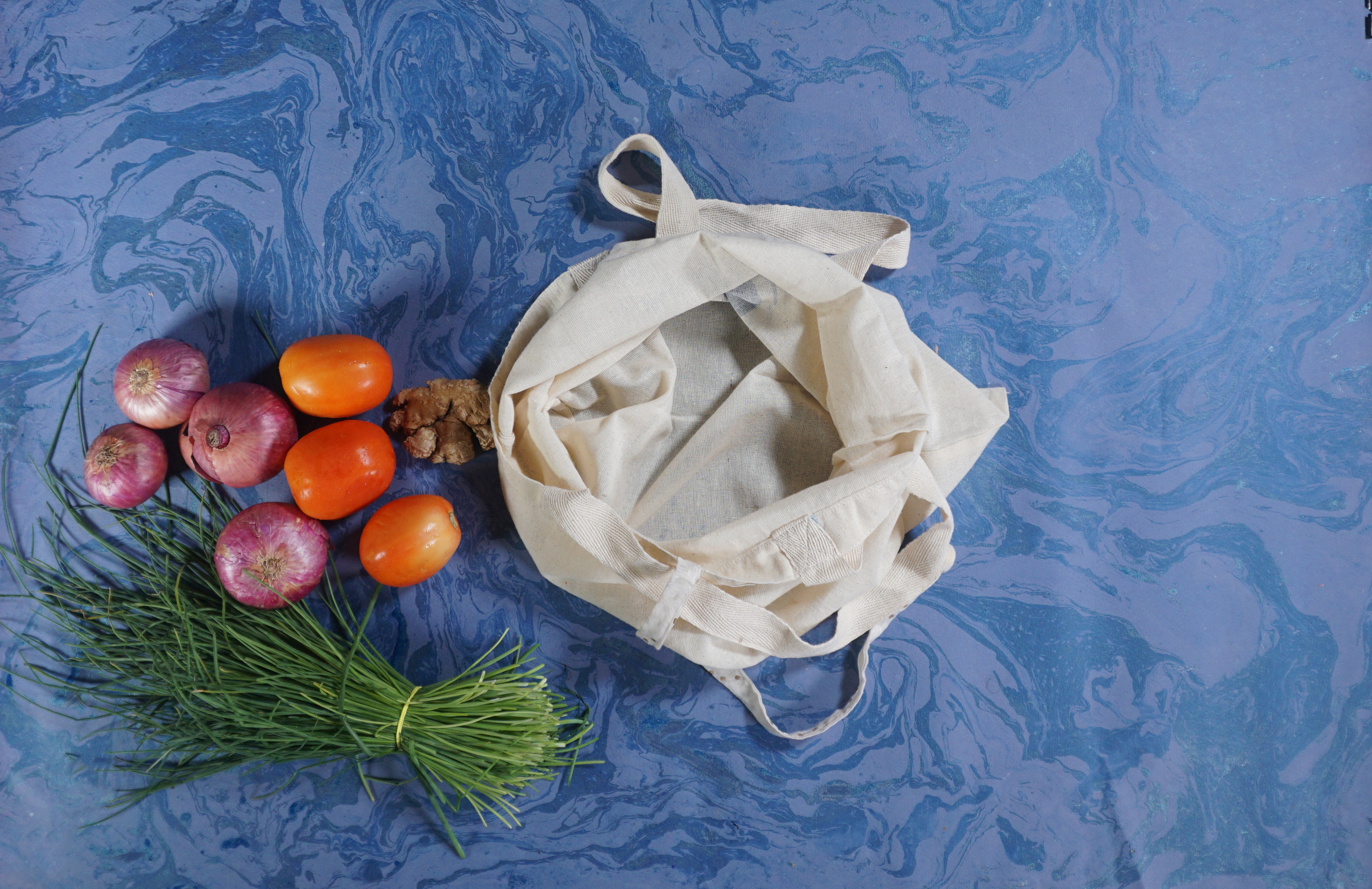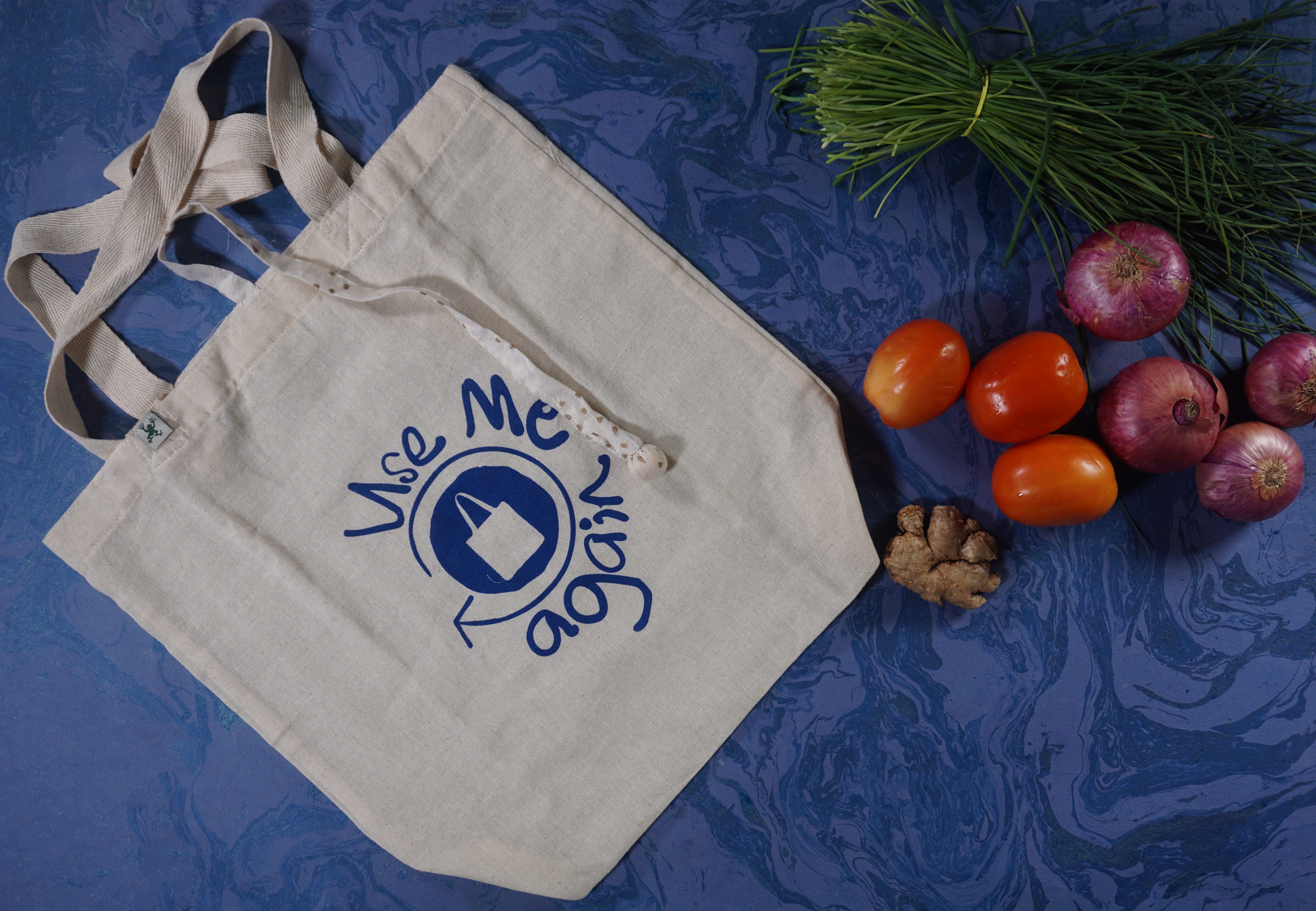That depends on how much you value it…
Why NO to Cloth Bags?
Ecoexist (a Social Enterprise in Pune) started promoting cloth bags in 2009 with a campaign called UseMeAgain. They were speaking to a public that had been spoilt into the habit of receiving free plastic carry bags from vendors on demand. Vendors were afraid to stop this service for fear of losing their clients.
To move a consumer habit from getting several plastic bags for free to paying a reasonable amount for a sturdy cloth bag was the challenge that the campaign faced in mainstreaming cloth bags. Today in 2016, they are nowhere near our goal. And a big reason is the cost factor involved.
Govt. says ‘NO PLASTIC BAGS!’
In the past six years a few things have changed in this scenario. The government banned the free distribution of plastic carry bags ( at least by large chain stores ) and made them charge for plastic bags. This was a deterrent to consumers who regularly shopped for groceries in these stores and a little change was seen. However this move still did not address the very thin plastic bags being given out by roadside vendors for free.

Cost of a Cloth Bag:
In early 2016, the governments of Uttar Pradesh, Punjab and Karnataka have banned the distribution of plastic carry bags and Ecoexist started to get queries from Chandigarh, Lucknow and Bangalore asking for the bags – many from large wholesale traders wanting regular big supplies of cloth bags.
They were all asking for bags that cost between Rs.5 and Rs.10. This was what they felt was a ‘reasonable’ cost for a cloth bag.
In reality, between the cost of the fabric, the stitching labour and the logistics involved in organising the supply, the true cost of just making a cloth bag is between Rs.30 to Rs.40. This is a bag that is made to last for at least three years. Fair trade would mean offering between Rs.7 to Rs.10 simply for the stitching of a bag by a woman so she may earn a fair wage.
Effective Cost of a Cloth Bag:
Ecoexist realised that what someone is willing to pay for a cloth bag depends very much on what they intend to do with the bag and how they are planning to use it. If a cloth bag is going to be a ‘disposable’ item that you use only once or twice – you would hesitate to pay anything beyond Rs.10 to Rs.15 for it.
However their intention was to move from a single use – use and throw habit into a use and reuse lifestyle. So those consumers that expected to use their bags for a long time – would not mind the cost involved in it.
Also, adding value to the bag with simple artwork was a way of both enhancing the look as well as using the bags as a means to educate. People are willing to pay for a bag that is ‘more than JUST a bag’.

Real Value of a Cloth Bag:
Pricing of eco products like cloth bags depend greatly on the way they are positioned and how people perceive their value in their own lives.
The real value of a cloth bag is in fact, not just in the service it provides to you but the protection it offers to the environment because of what it is NOT. Whereas plastic carry bags pollute the soil when put into landfill, the air when they are burnt and cause the death of animals who eat them… cloth bags are reusable, biodegradable and will not create any pollution of this kind. Buy Eco-friendly cloth bags online.
What is the cost of preventing pollution? This is the value of a cloth bag.
by Manisha Gutman, a Partner at Ecoexist
I AM LOOKING FOR BULK QUANTITY OF COT BAGS FOR FREE DISTRIBUTION IN OUR COMMUNITY (3-4000 PCS). CAN YOU PLS HELP ME IN GETTING THE SAME WITH MINIMUM COST.
REGARDS
VARGHESE
9811291098
Forwarded your message to concerned team. they will get in touch with you. Thanks